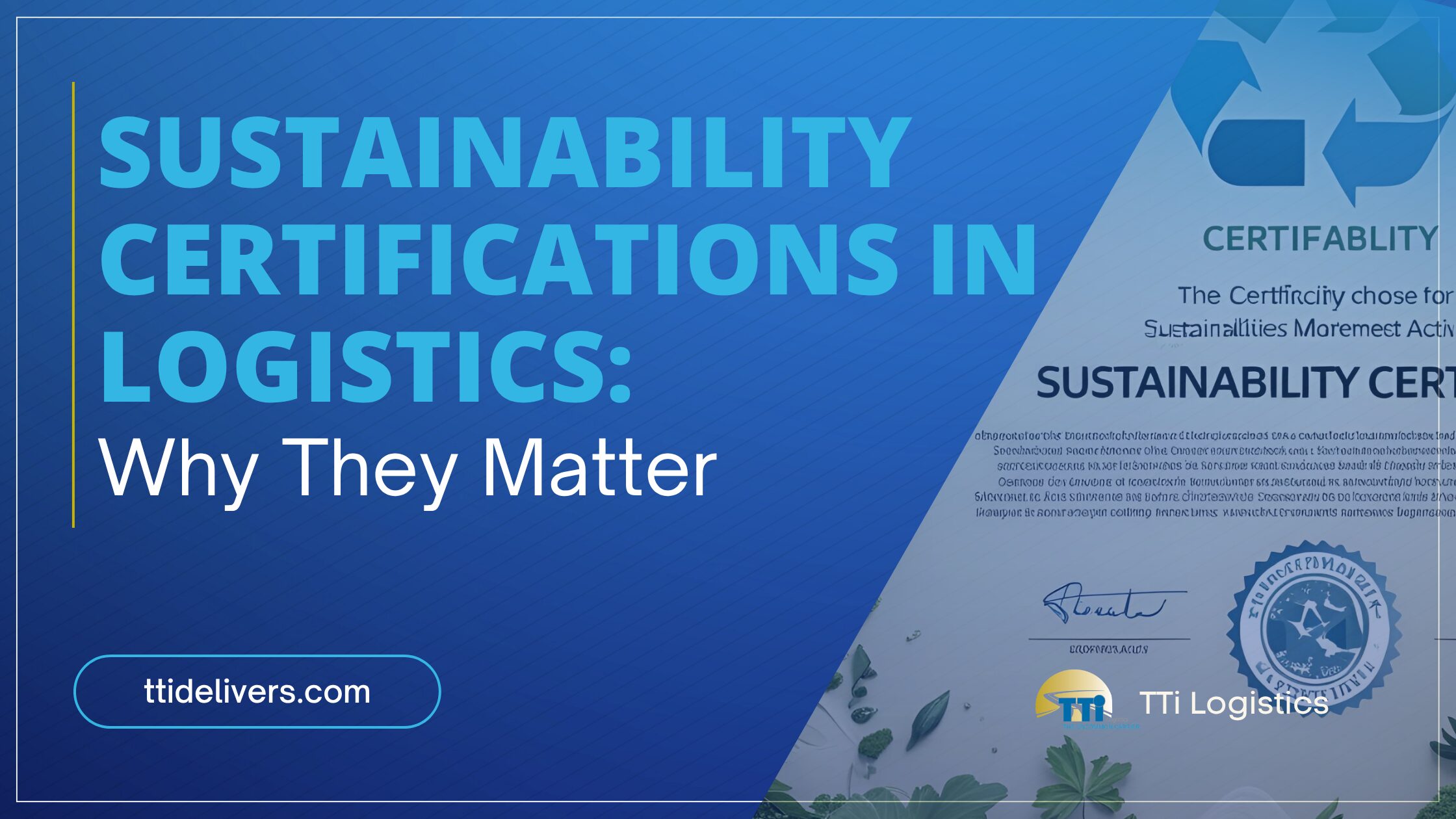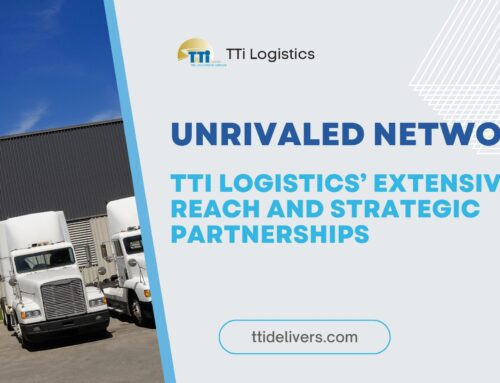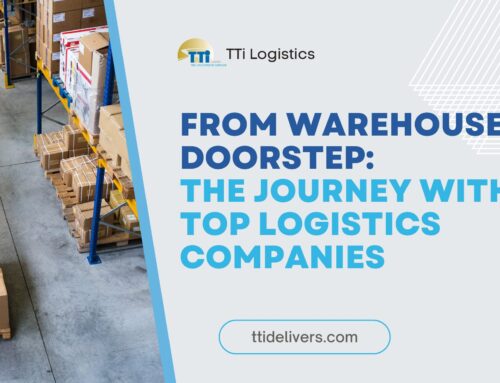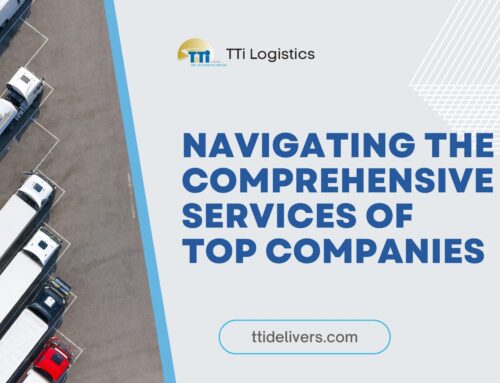How Certifications Are Driving a Greener Supply Chain
As global logistics becomes faster and more complex, it’s also under more pressure to become cleaner. Businesses across every industry are committing to environmental goals—and that means holding their logistics providers to higher standards, too.
Enter sustainability certifications: third-party programs that validate a company’s efforts to operate in an environmentally and socially responsible way. In logistics, these certifications are more than badges—they’re a sign of credibility, transparency, and long-term commitment to doing business responsibly.
At TTi Logistics, we help clients reduce emissions, waste, and inefficiency. But we also understand the importance of third-party recognition to prove those efforts are real. In a competitive industry where greenwashing is all too common, certifications matter more than ever.
Why Sustainability Certifications Are Crucial in Logistics
They Build Trust with Clients and Partners
When brands evaluate logistics providers, they want proof—not promises. Certifications offer verified benchmarks that demonstrate:
- Carbon reduction efforts
- Waste management practices
- Energy efficiency programs
- Worker safety and community impact
For procurement teams and ESG managers, certifications make it easier to choose partners that align with their values.
They Support Regulatory Compliance
Environmental regulations are evolving quickly. Sustainability certifications help logistics companies stay ahead of:
- Emissions reporting requirements
- Packaging and recycling standards
- Clean fuel mandates
- Labor and ethical sourcing laws
Staying certified means staying compliant—and avoiding fines or public backlash.
They Contribute to Broader Corporate ESG Goals
For many shippers, Scope 3 emissions (those generated by external vendors, including logistics providers) are a key part of sustainability reporting. Working with certified partners helps them meet emissions targets and improve ESG scores.
They Unlock Market Advantages
Certified logistics companies can qualify for:
- Preferred vendor lists
- Sustainability-linked contracts
- Green financing or tax incentives
- Public-sector bids with environmental clauses
Sustainability is no longer a niche—it’s a market expectation.
Key Sustainability Certifications Relevant to Logistics
There’s no one-size-fits-all certification. Logistics providers must evaluate which programs align with their operations, service areas, and client expectations. Here are the most recognized certifications in the industry today:
SmartWay (EPA – United States)
Focus: Fuel efficiency and emissions reduction
Who it’s for: Freight carriers, logistics companies, and shippers
Benefits:
- Measures CO₂, NOx, and PM emissions
- Recognizes top-performing carriers
- Helps clients choose eco-friendly transportation partners
TTi Logistics works with SmartWay carriers and encourages clients to prioritize SmartWay-certified partners when building freight networks.
ISO 14001: Environmental Management Systems
Focus: Systematic environmental management
Who it’s for: All organizations, including logistics providers
Benefits:
- Reduces environmental impact through structured processes
- Supports continuous improvement and audits
- Globally recognized
ISO 50001: Energy Management
Focus: Reducing energy use through data and planning
Who it’s for: Large warehouse or fleet operators
Benefits:
- Reduces operating costs
- Aligns with carbon reduction goals
- Enables proactive energy tracking
LEED Certification (for Warehouses and Fulfillment Centers)
Focus: Sustainable building and operation
Who it’s for: Owners/operators of logistics facilities
Benefits:
- Recognizes green design and energy efficiency
- Adds value to real estate assets
- Demonstrates long-term environmental commitment
B Corporation (B Corp)
Focus: Overall social and environmental responsibility
Who it’s for: Purpose-driven companies
Benefits:
- Assesses governance, worker well-being, community impact, and environmental performance
- Ideal for mission-based logistics providers or 3PLs
- Recognized by global brands and consumers
How to Begin the Certification Process
Assess Your Current Environmental Impact
Before applying for a certification, it’s important to understand where you stand. Conduct an internal audit of:
- Fuel consumption and emissions
- Warehouse energy use
- Packaging and material waste
- Current partnerships with green carriers
- Sustainability policies (or gaps)
TTi Logistics helps clients assess their current logistics footprint and identify the right targets for improvement and certification.
Choose the Right Certification for Your Goals
Different certifications focus on different areas. Select programs based on:
- Your service model (carrier vs. warehouse operator vs. 3PL)
- Your market (regional vs. global clients)
- Your customer expectations and RFP requirements
- Your long-term sustainability roadmap
TTi Logistics works with clients to meet partner requirements, whether that includes SmartWay-compliant routing or LEED-compliant warehousing.
Set Measurable Sustainability Targets
Certifications require consistent performance—not just a one-time effort. Set realistic, trackable goals such as:
- Reduce fleet emissions by 15% in 12 months
- Achieve 95% recyclable packaging use
- Improve energy efficiency in warehouses by 10%
- Shift 25% of long-haul freight to intermodal transport
Train Teams and Standardize Processes
Sustainability only works when it’s part of your company culture. Train warehouse teams, dispatchers, and drivers on best practices for:
- Eco-driving
- Waste reduction
- Efficient equipment use
- Digital documentation workflows
Apply and Prepare for Audits
Once goals are in place and progress is underway, begin the certification application process. Expect to provide:
- Environmental impact reports
- Equipment maintenance logs
- Fuel usage and emissions data
- Proof of standard operating procedures
- Documentation of energy-efficient upgrades
Long-Term Benefits of Being Certified
Beyond meeting sustainability goals, logistics providers that earn and maintain certifications unlock strategic advantages:
Competitive Differentiation
Certified providers stand out in crowded RFP processes and contract bids.
Stronger Customer Loyalty
Clients who prioritize environmental performance prefer vendors who walk the talk. Certification gives your customers confidence in your values and your operations.
Improved Operational Efficiency
- Lower fuel costs
- Less equipment downtime
- Smarter warehouse layouts
- Fewer packaging materials used
Easier Reporting for Clients
Brands working with TTi Logistics benefit from our ability to provide sustainability-related data for:
- Scope 3 emissions reporting
- Sustainability-linked financing disclosures
- ESG performance scorecards
Trends Shaping the Future of Sustainability in Logistics
Government Incentives and Regulations
Expect more grants, incentives, and reporting requirements at the state, federal, and global levels. Certified providers will be in a better position to qualify and comply.
Digital Carbon Tracking and Blockchain Verification
Emerging technologies will allow near-instant verification of carbon footprint, transit efficiency, and energy usage—making third-party certification even more streamlined and trustworthy.
Pressure from Retailers and Big Brands
Retailers are pushing for greener last-mile delivery, recyclable packaging, and transparent emissions data. Certification helps logistics providers align with their requirements and gain preferred vendor status.
Sustainability as a Service (SaaS)
Just as logistics went digital, sustainability is becoming a service layer. Forward-thinking companies will offer real-time sustainability dashboards, offset programs, and reporting tools—especially in B2B freight.
Lead with Sustainability, Deliver with Confidence
Sustainability certifications aren’t just symbols—they’re roadmaps for doing better business. In a world where customers, partners, and governments demand greater transparency and impact, being certified sets your logistics strategy apart.
At TTi Logistics, we’re committed to sustainable operations that support our clients’ goals and the environment. Whether you’re looking to work with certified providers or become one yourself, we’re here to help you build a logistics strategy that moves smarter, cleaner, and with purpose. Let’s work together to move your freight and your values forward.







